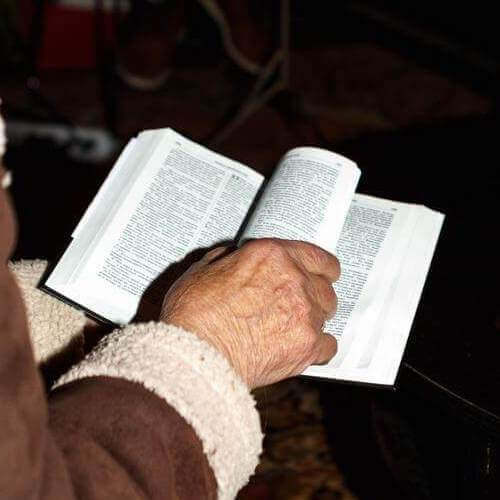Our beliefs
A story of love and redemption
The story of God
God’s story is a story of love and redemption. The story or message that most clearly shows this redemptive love is the death, burial, and resurrection of Jesus (John 3:16). The Scriptures declare that this message is of “first importance” (1 Corinthians 15:3). As God reveals his nature through the stories of the Bible, the following teachings emerge as central doctrines. These teachings form the core of our beliefs at Transformation Church.
At Transformation Church, we sincerely try to follow the Bible and its teachings. However, our ability to logically figure everything out is not the basis for our acceptability before God. Our salvation is based on what God has done for us through Jesus Christ. We must be right about the fact that we cannot be right about everything and are, therefore, completely dependent on God’s graciousness and mercy.
People Not Product
According to the Bible, people are good simply because God made them in his image. Period. He cherishes us because we bear a resemblance to him. We believe that all people were created by God, in God’s image, for God’s glory. Consequently, we believe that every person deserves to be treated with dignity and respect. This is God’s plan, this is God’s promise, and we want to be part of fulling it. We therefore reject any social idea(s) in our society that determines people’s value based on their racial, socio-cultural, educational, financial, family or every other identity/background.
Let us make human beings in our image, make them reflect our nature, so they can be responsible for the fish in the sea, the birds in the air, the cattle, and, yes, Earth itself, and every animal that moves on the face of Earth
And because we are made in His image, we will only be satisfied when we engage in our role as image bearers of God.
Rooted in history
In essentials unity. In non-essentials liberty. In all things love.
Transformation Church is rooted in the ancient, historic teachings of Christian orthodoxy as articulated in the Apostles Creed. In addition to the doctrinal statement below, we join with followers of Jesus worldwide in affirming the Lausanne Covenant.
The Apostle’s Creed
I believe in God, the Father almighty, Creator of heaven and earth.
I believe in Jesus Christ, His only Son, our Lord, who was conceived by the Holy Spirit, born of the Virgin Mary, suffered under Pontius Pilate, was crucified, died, and was buried; He descended to the dead. On the third day He rose again; He ascended into heaven, He is seated at the right hand of the Father, and He will come to judge the living and the dead.
I believe in the Holy Spirit, the holy catholic (Universal) Church, the communion of saints, the forgiveness of sins, the resurrection of the body, and the life everlasting.
Amen.
Our essential beliefs are intended to be the basis for fellowship. There will always be peripheral doctrines that committed Christians disagree upon, but the essential beliefs of Christianity are non-negotiable. Below is a list of Transformation Church’s essential beliefs.
The Bible
The Bible is the inspired Word of God and is the final authority in life and doctrine
The Old and New Testament are verbally inspired by God, the only written revelation from God to man. The Bible is infallible and the authoritative rule of faith and conduct for mankind (2 Timothy 3:15–17; 2 Thessalonians 2:13; 2 Peter 1:21).
The One True God
There is one true God (Deuteronomy 6:4; Matthew22:37), eternally existing in three Persons: God the Father, God the Son and God the Holy Spirit. These are equal and are one God. God created the world out of nothing and by his power he sustains all he has created (Genesis 1:26, John 1:1, Ephesians 1:13-14). God is called by many different names in the Bible because of the different super dimensions of His personality. God is love, sovereign, omniscient, omnipresent, and omnipotent.
Jesus, The Godman
Jesus the Messiah (Christ) the second person of the tri-personal God was miraculously born of the Virgin Mary (Luke 1:35) and became flesh and blood (John 1:1-16, John 1:29-34) without ceasing to be God. He lived a sinless life and performed many miracles to confirm his divinity. He died on the cross as a perfect sacrifice, paying the debt for our sins (Mark 10:45). On the third day after his death, he arose from the dead showing his victory over sin and death (1 Corinthians 15:3-8). He appeared to his disciples and then ascended into heaven and now sits at the right hand of God serving as our mediator.
When we put our faith in Christ, it triggers a spiritual chain reaction. Regardless of what we have done or have not done or who we are or are not, we become the temple of the Holy Spirit (1 Corinthians 6:19). Our names are written in the Lamb’s Book of Life (Revelation 3:5). We become citizens of heaven (Philippians 3:20–21). We are given eternal life (John 3:16). We are adopted and become children of God (Galatians 4:4–7). Our sins are forgiven and forgotten (Hebrews 8:12). We are credited with the righteousness of Christ (Romans 4:4–5). We are born again (John 3:3). God takes ownership of us (1 Corinthians 6:20). We receive an eternal inheritance (Ephesians 1:13–14; 1 Peter 1:3–5). The evidence of salvation is twofold. The internal evidence is the direct witness of the Holy Spirit (Romans 8:16). The external evidence is the fruit of the Spirit (Galatians 5:22–23). We become new creations (2 Corinthians 5:17) and are transformed into the image of Christ (2 Corinthians 3:18).
God the Holy Spirit
The Holy Spirit is equal with the Father and the Son. He makes people aware of their need for Christ (John 16:8-11). He indwells and empowers the believer (1 John 4:13, Galatians 5:16-26). His presence in our life is a seal and guarantee that we are God’s children (2 Corinthians 1: 21-22). The Holy Spirit gives believers spiritual gifts (1 Corinthians 12:7-11, Romans 12:4-8) to be used to help others.
We believe that God is sovereign in bestowing spiritual gifts. It is, however, the believer’s responsibility to attempt to develop his or her sovereignly given spiritual gift(s). We believe in the baptism, infilling and gifts of the Holy Spirit. While the spiritual gifts from God are good and essential for the flourishing of God’s people, we also believe that particular spiritual gift(s) are not an indication of deep spiritual experience (1 Corinthians 12:7,11; Ephesians 4:7–8). We believe that God does hear and answer prayer, in accordance with His own will, for the sick and afflicted. We believe that it’s the privilege and responsibility of every believer to minister according to the gift(s) and grace of God that is given to them. (Romans 12:1–8; 1 Corinthians 13; 1 Peter 4:10–11). The nine fruits of the Spirit (Galatians 5:22–23) are the by-product of a Spirit-filled life and are evidence of deep spiritual experience and maturity.
The Fall of Man
Man was created in the image of God (Genesis 1:26). However, by a voluntary act of the will, Adam, and Eve disobeyed God (Genesis 3:6). That first sin had several repercussions. Man was excommunicated from the Garden of Eden (Genesis 3:23), a curse was pronounced (Genesis 3:14–19), the process of physical death began (Genesis 2:17), and man died spiritually (Romans 5:12–19). Sin separated humankind from God and left man in a fallen (sinful) condition, separated from the life and love of God (Romans 3:23).
The Rescuing (Salvation) of Man
Salvation is a free gift of God. The death of Christ on the cross and resurrection from the dead on the third day is the only sufficient payment for our sins(1 John 4:9–10;Hebrews 9:26). All have sinned, but all can be saved. This salvation is available for any who put their trust in Christ as Savior (Romans 3:23, Romans 6:23, John 3:16). Those trusting Christ should repent of sin, confess their faith, and be baptized (Romans 10:9, Acts 2:38).
Eternal Security
We believe that all true Christ-followers are eternally secure through the Spirit’s power (John 6:37–40; 10:27–30; Romans 8:1, 38–39; 1 Corinthians 1:4–8; 1 Peter 1:5). We believe that it’s the privilege of believers to rejoice in the assurance of their salvation through the testimony of God’s Word, which clearly forbids the use of Christian liberty as an occasion for the flesh (Romans 13:13; Galatians 5:13; Titus 2:11–14).
The Church and Her Mission
The church is the Body of Christ on earth, empowered by the Holy Spirit to worship God, continue the task of reaching the lost and disciple the saved Acts 1:8; Matthew 28:18–20; John 17:8, helping them become fully devoted followers of Christ (Ephesians 4:1-16) which includes but not limited to equipping God’s people for ministry (Ephesians 4:11–16; 1 Corinthians 12:28, 14:12).
Baptism in Water
The Scripture teaches that all who repent and believe in Christ are to be baptized by immersion (Matthew 28:19). Baptism is a public profession of faith in Christ. Baptism is symbolic of the death, burial, and resurrection of Christ. It’s a declaration to the world that we have died to sin and have been raised with Christ to walk in newness of life (Romans 6:4).
Our view of the Gospel
We believe in a movement of the gospel
The gospel is a living thing that grows and sweeps us along with it. The gospel is both the power for and shaping factor of all we do (Romans 1:16; Galatians 2:14). From the gospel flow our values and everything we do and how we live our daily lives.


